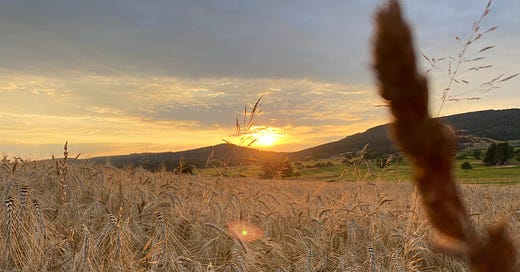Russia’s invasion of Ukraine is a major story. The human suffering in Ukraine right now is a major story. The potential escalation of war in eastern Europe is a major story. Rising gas prices are a major story. Even worries about nuclear warfare have become major stories since the invasion began.
But did you know famine may also become a story related to this conflict?
On Saturday, the International Monetary Fund (IMF) warned “the economic consequences are already very serious” as a result of the invasion. Among other things, it is driving grain prices much higher around the world—at a time when inflation and other price pressures were already elevated.
Consider this explanation of the problem from a recent article titled “The Food War”:
Russia and Ukraine are massive growers of grain, especially wheat. Russia produces about 10 percent of the planet’s wheat; Ukraine about 4 percent. Some of that production is consumed at home, but after their domestic use, Russia and Ukraine together provide about one-quarter of all the planet’s wheat exports. They are important exporters of corn and barley as well, and of cooking oils, especially sunflower oil. Now the Russian invasion has closed the ports through which Ukraine’s wheat moved to world markets. Insurance costs have jumped for all shipping in the Black Sea. Spring crops will probably go unplanted in Ukraine; Russian crops face sanctions and embargo. Russia and its ally Belarus also are—or were—important exporters of the fertilizer that other food-raising countries use to grow their own crops.
This upheaval, the author writes, “will touch every food consumer on Earth,” including those living in the United States. But those who are already hungry will be hit the hardest.
Keep reading with a 7-day free trial
Subscribe to Tipping Point Prophecy Update to keep reading this post and get 7 days of free access to the full post archives.



